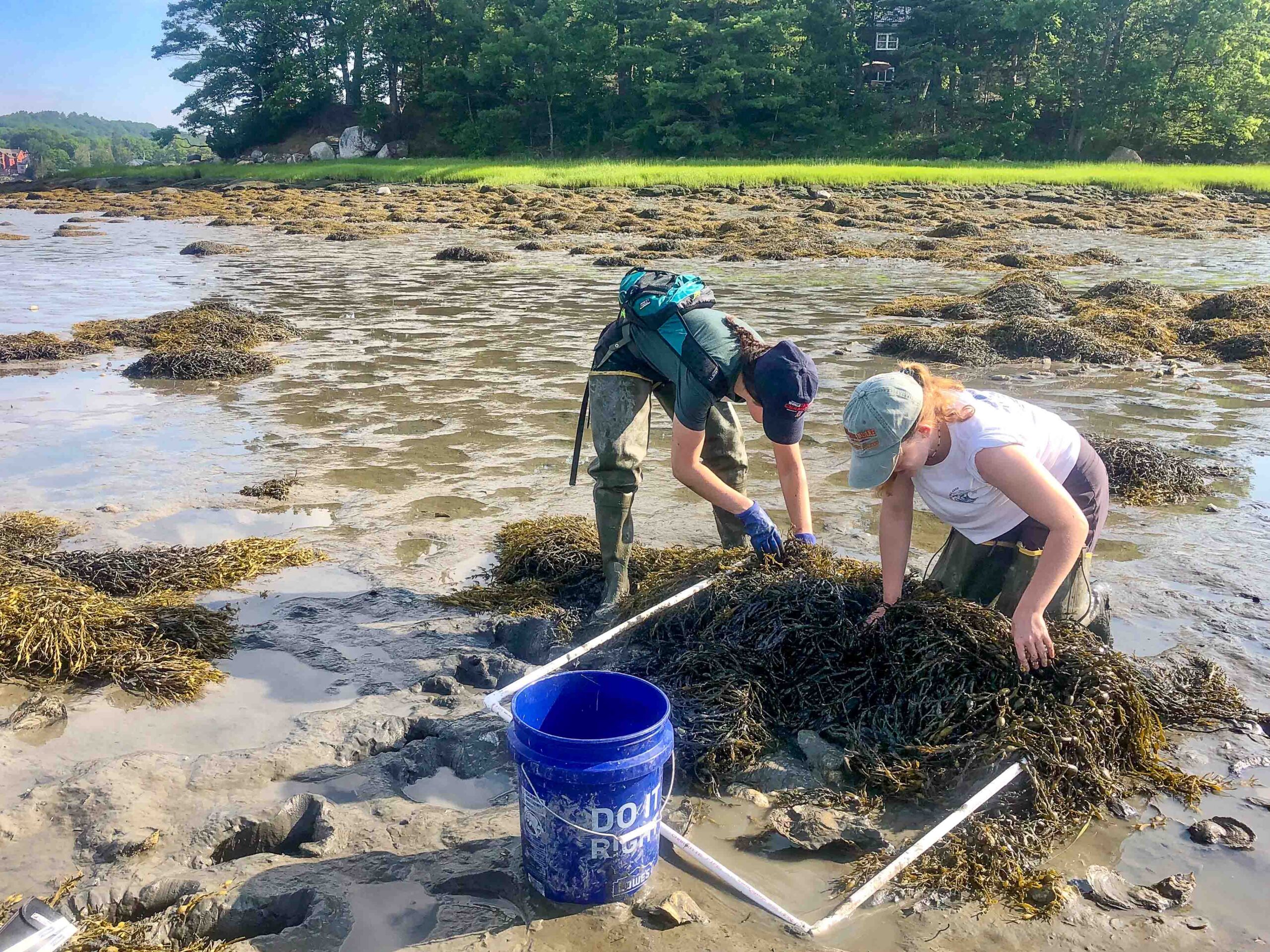
Summer Marine Ecology Research Opportunity for High School Students
This summer high school students, including rising freshmen and recent graduates, have an opportunity to learn about marine ecology while getting muddy in the Damariscotta River estuary. Sarah Risley, a University of Maine graduate student based at the Darling Marine Center, will lead a team of undergraduate and high school students to measure the population, type and size of shellfish, such as soft-shell clams and oysters, and their predators at several sites in the upper Damariscotta River intertidal zone.
The data that students collect will be used to estimate populations of shellfish in the estuary and help inform future management by the Damariscotta-Newcastle Shellfish Committee in coordination with the Maine Department of Marine Resources.
The field work will take place at multiple monitoring sites along the river that were identified by shellfish harvesters through a participatory mapping study that Risley and fellow UMaine graduate student Melissa Britsch conducted with harvesters, shellfish farmers and other local experts during the past year. Applicants who are accepted into the program will conduct field work that will be scheduled during the second half of July and the first part of August.
This program is funded by local donors to the Darling Marine Center, a grant from the Broad Reach Fund to the Town of Damariscotta and a second grant to the Darling Marine Center, Joint Shellfish Committee and Lincoln Academy, from the University of Maine Mitchell Center for Sustainability Solutions.
The Darling Marine Center based research team is inviting high school students to apply to participate in piloting the shellfish surveys as the first step in launching a future community science research program in the Damariscotta River estuary.
Interested high school students can apply by completing the form found at dmc.umaine.edu
Please contact Risley with any questions at sarah.risley1@maine.edu.
Founded in 1965, the Darling Marine Center’s mission is to connect people to the ocean. The Center’s researchers, staff and students work alongside fishermen, aquaculture entrepreneurs, marine industry professionals and other members of the community in Maine and around the world. More information is available at dmc.umaine.edu
